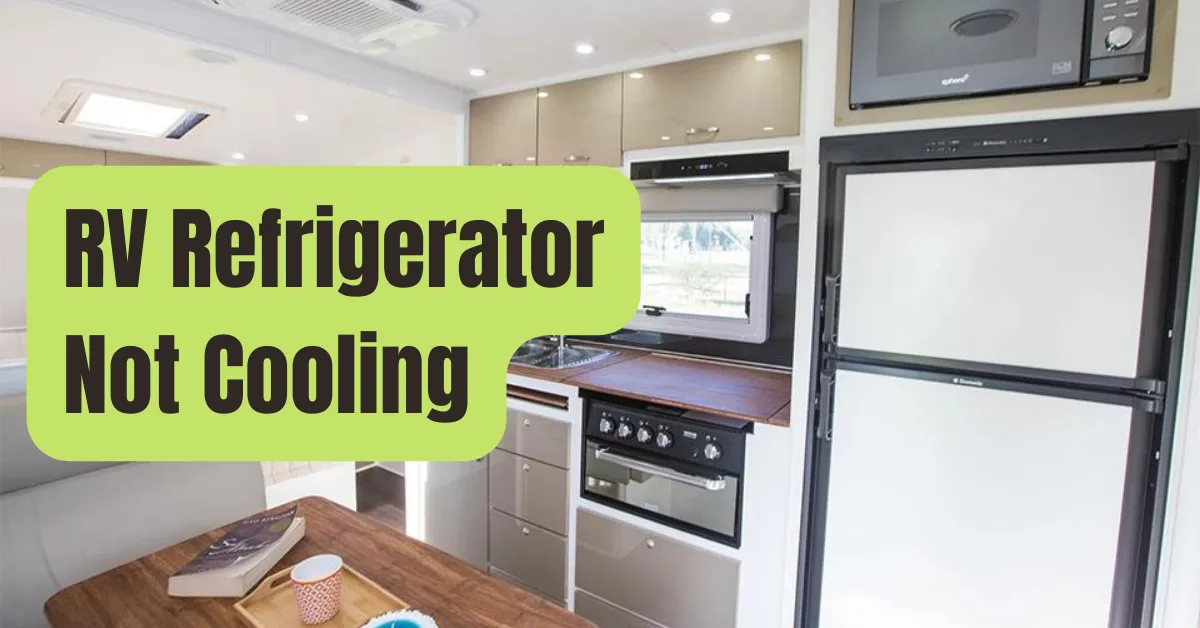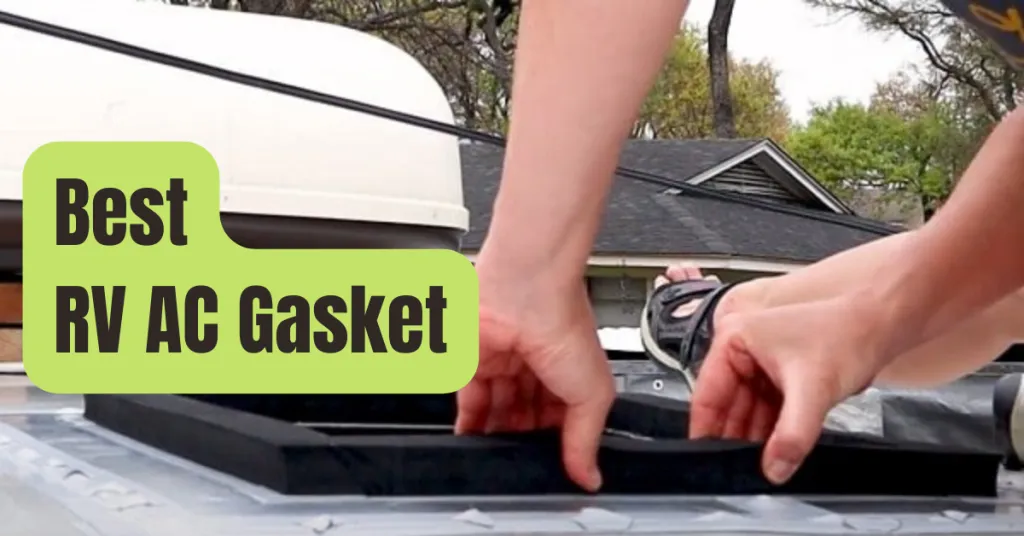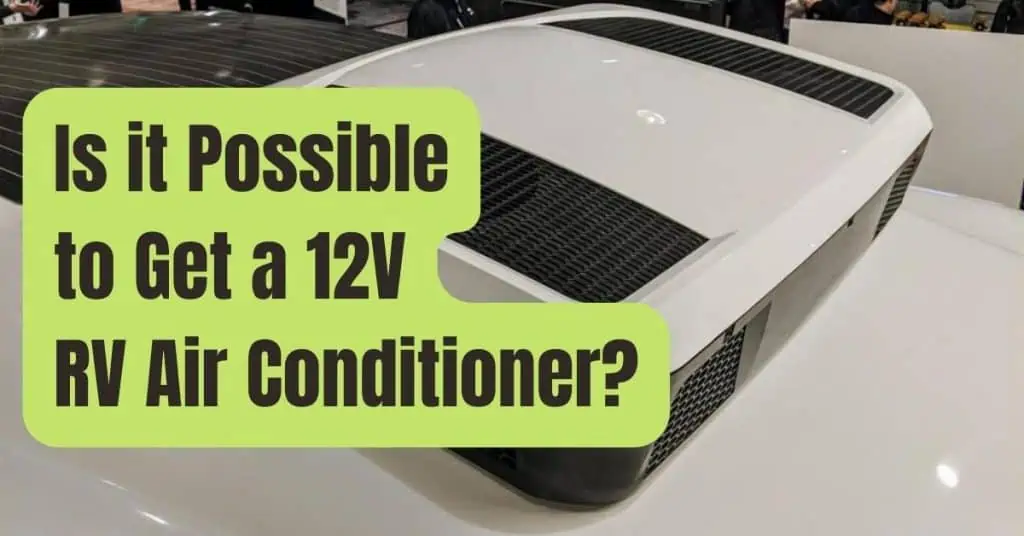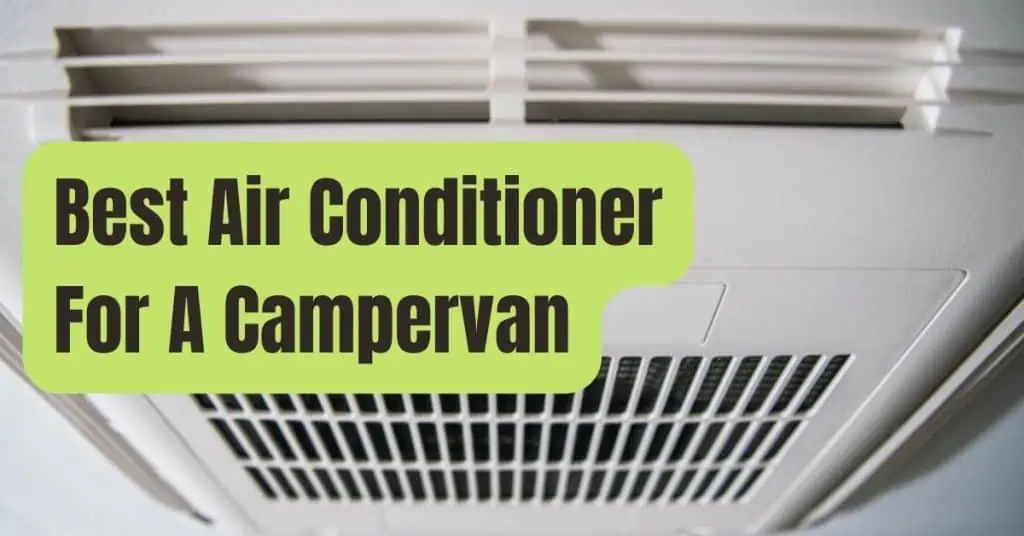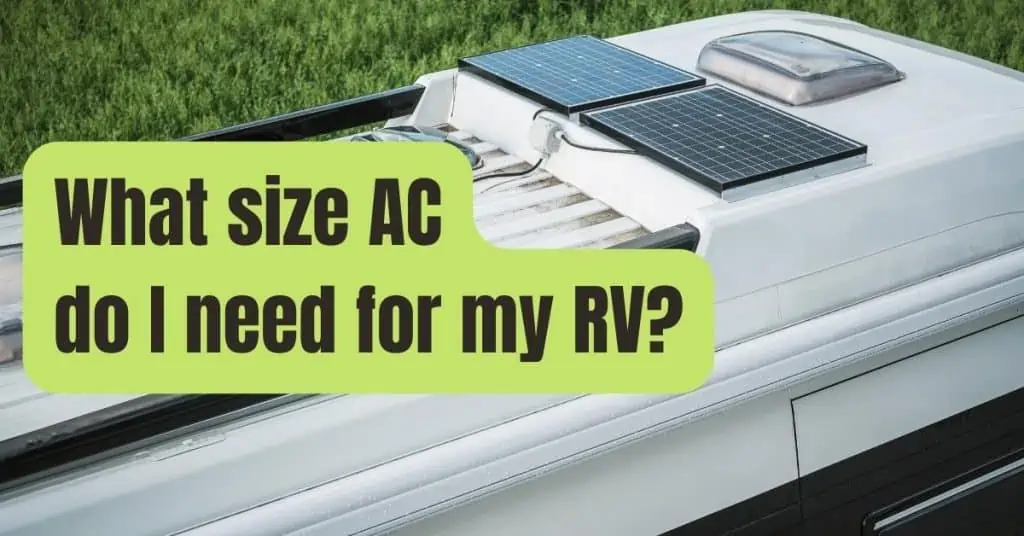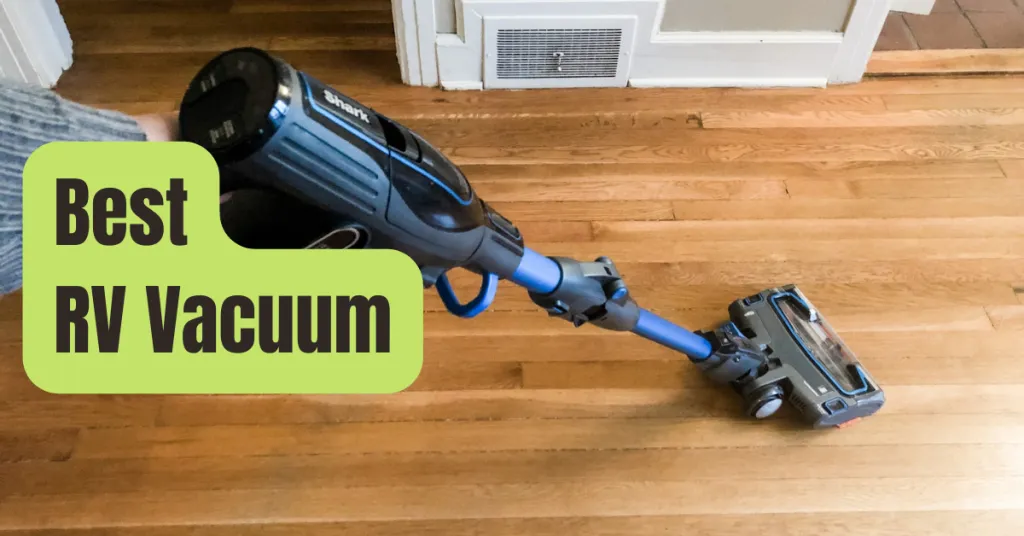An absorption, in certain ways Although RV refrigerators are wonderful devices, they sometimes have issues and fail to function as intended.
There might be many reasons why the refrigerator in your RV isn’t cooling down.
And encountering this issue may be irritating, regardless of the root reason.
We’re going to examine the most typical issues in this post, along with solutions.
Troubleshooting for RV Refrigerator That Isn’t Getting Cold
Today, we’re examining the absorption fridge, the most popular kind of RV refrigerator.
An incredible feature of this sort of refrigerator enables it to burn propane to produce coolness.
RV refrigerators work more harder than your home fridge does.
Even when they are tilted and disturbed, they still need to function.
Not to add, they have to resist abrupt temperature changes and shifting heights.

It might appear that the RV fridge should have a larger chilling capacity than your home refrigerator in order to solve these difficulties, but the contrary is really true.
The absorption cycle in an RV refrigerator runs more slowly and typically has just enough cooling power to function as intended.
This implies that even a little issue in an RV fridge might result in serious issues.
Fortunately, there are certain common troubleshooting procedures we may follow to identify the problem.
You must know how to reach the refrigerator’s rear before we can begin troubleshooting.
The external wall of an RV often has access and vent panels that provide access to the refrigerator’s rear.
You may see the inside of the refrigerator’s rear by removing the panel.
The sections that will concern you are shown in the figure below.
Every refrigerator varies a little bit.
The components could be at various places, but they need to have a comparable appearance.
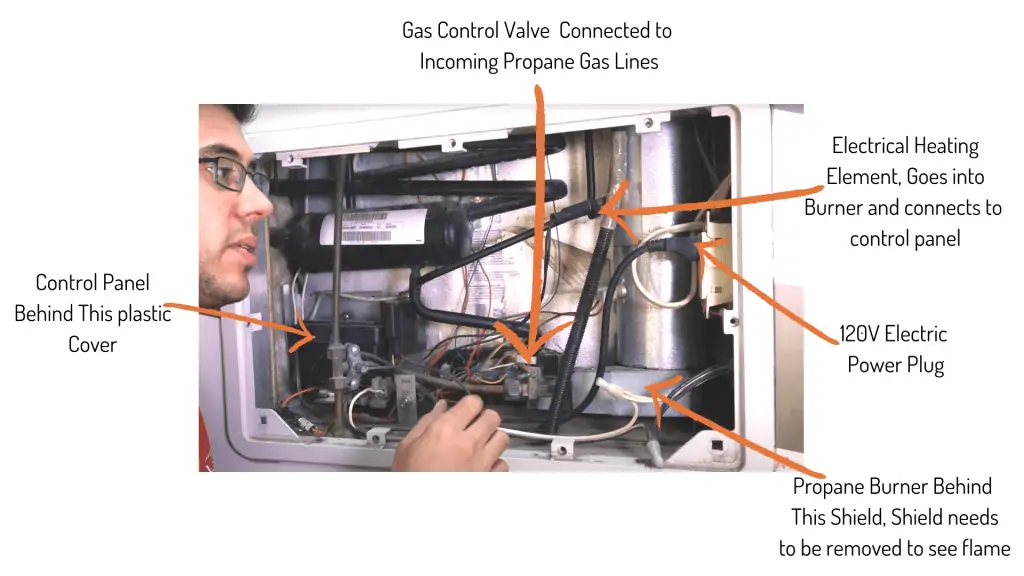
#1. The Refrigerator Runs On Gas, Not Electricity.
In this instance, either the electrical heating element is defective or there is a problem with the electrical circuit.
To verify whether the control board is powering the heating element, use a multimeter on the element itself.
The heating element has to be changed if it is and the RV refrigerator is not cooling.
If it isn’t working, you should first make sure the fridge has power by checking the 120V power circuit.
No power? Examine the breakers and the circuit.
On the other hand, if there is electricity, the relay or fuse on the control board is probably not functioning.
The actual control board itself can also need replacement.
One thing you may do is remove the control board’s cover and check to see if any fuses need to be changed.
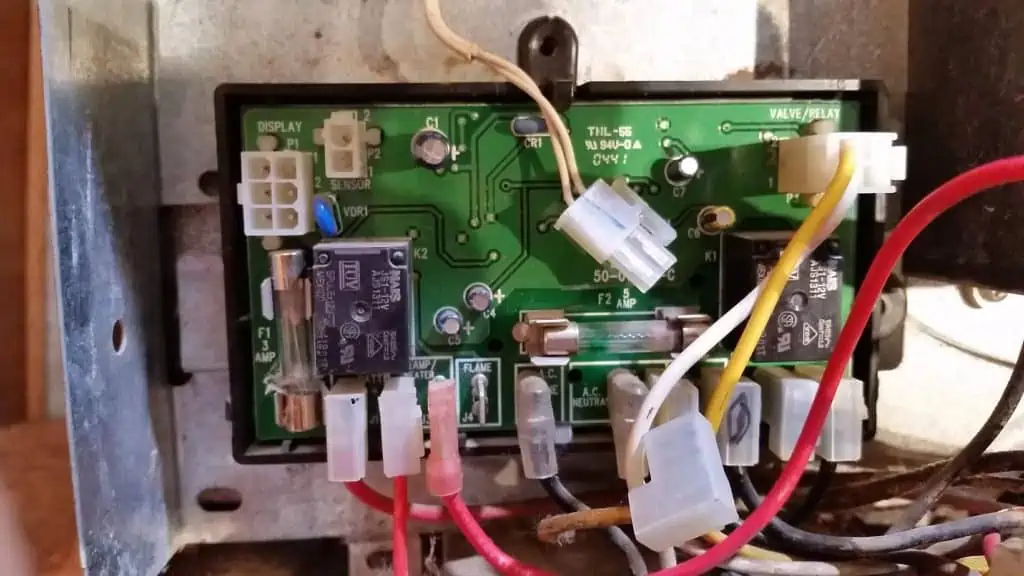
#2. The Refrigerator Is Gas-Free But Runs On Electric
If the refrigerator only runs on electricity, something is wrong with the gas circuit.
If you have propane, that should be your first priority.
Check the burner on the back of the refrigerator to see if there is any flame if you are certain that you have propane and that the tanks are turned on.
If there is no flame, you may need to restart the refrigerator to check if it turns on.
If the flame starts to burn but then extinguishes, the flame sensor is probably defective.
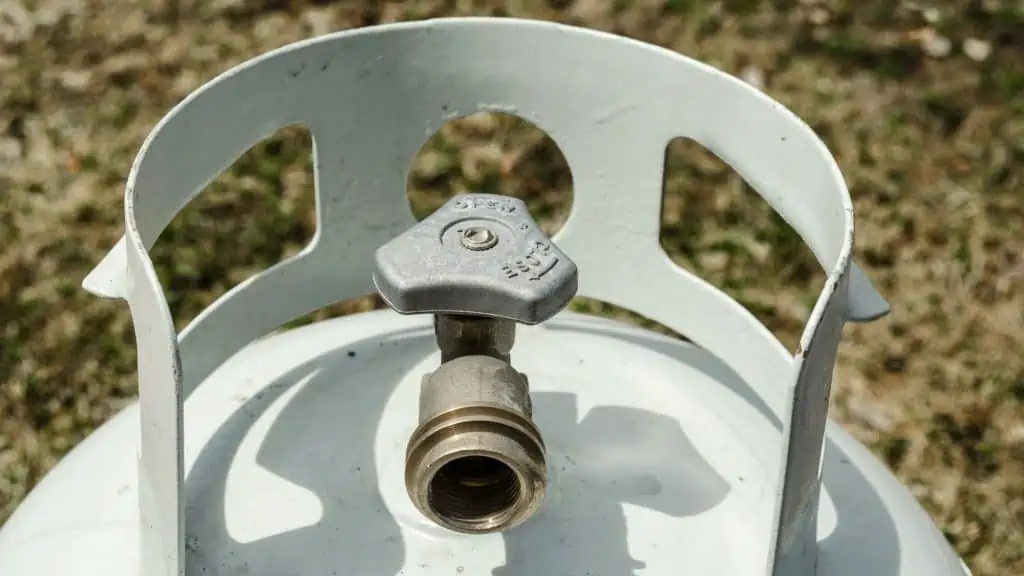
The igniter is broken or misplaced if you hear the valve click on, smell gas, but it does not light.
Electric igniters are used in RV refrigerators; you should hear a clicking sound and see a spark.
The control circuit board is most likely malfunctioning if there is no clicking sound yet gas is still flowing.
The gas valve may not be functioning correctly if you hear the ignitor but do not see any flame.
Last but not least, the control board could have malfunctioned if you don’t see anything or hear any clicking.
#3. The RV’s Refrigerator Is Operational, But The Freezer Is Insufficiently Cold.
It should be below freezing in your RV freezer but still in the 20s.
Although this may appear warm for a freezer, an RV freezer typically operates in this temperature range.
Your ice cream can be mushy since RV absorption type refrigerators don’t get the freezer as cold as domestic refrigerators do.
If the temperature in your RV freezer won’t remain below zero, there may be a cooling or insulation issue developing.
In order to determine what could be going on, try the following actions.
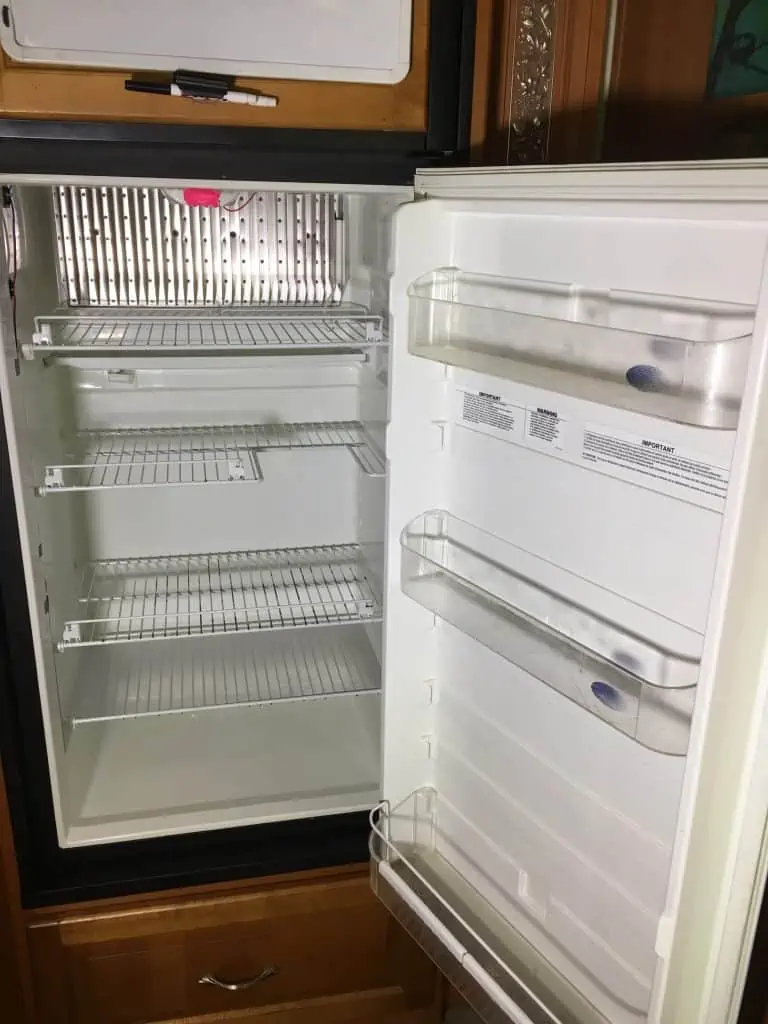
RV Fridge Problems in the Heat
Take note of the outside temperature before determining if the RV refrigerator is not getting cold enough.
RV refrigerators are quite sensitive to ambient temperature and reject their heat outdoors.
The Rv Refrigerator Is Functional But Does Not Get Cold In Warm Weather.
A couple things might be happening if the RV fridge is operating continuously but still isn’t chilling.
Installing an RV fridge fan can help you start by ensuring that the fridge is adequately aired.
These are crucial for your fridge to operate at its best in hot weather since it must be able to reject its heat.
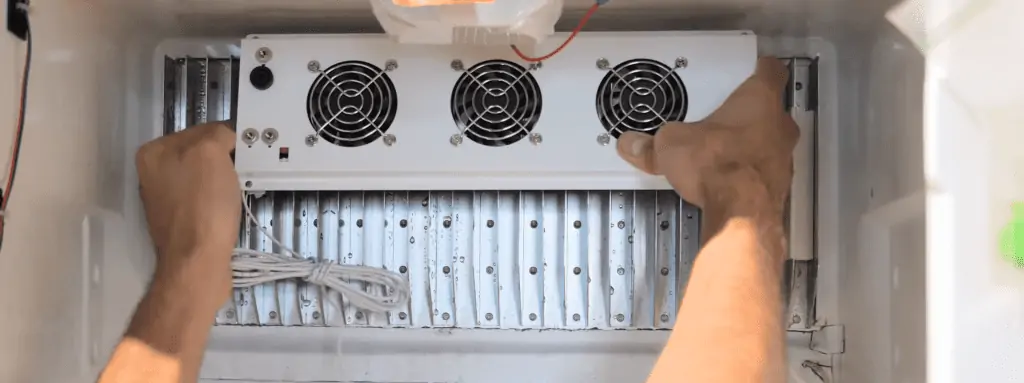
Pro Tip: In warmer weather, park your RV with the side facing the refrigerator in the shade.
Otherwise, the sun will generate more heat and affect its performance negatively.
If you are certain that the airflow is sufficient, the cooling system may be malfunctioning.
The typical lifespan of a cooling unit is 15 to 20 years.
However, the fridge could not be chilling for various reasons even if it is functioning well.
Common Insulation Problems with RV Fridges
Remember that RV absorption refrigerators lack the home refrigerator’s chilling capacity.
In other words, if the refrigerator’s insulation is compromised, it may not be able to keep up with the rate of heat loss.
The walls of many RV refrigerators include what are known as vacuum panes.
Vacuum-sealed foam is used in these panes to offer a lot of insulation.
These may sometimes fail after several years of usage, severely lowering the refrigerator’s insulating ratings.
Another frequent failure area is the magnetic seals that surround the door.
Placing a piece of paper or a dollar note inside the door is one easy technique to determine whether the seal is damaged.
It ought to be challenging to remove.
The door seal is failing if a piece of paper or a dollar note may be removed with ease.
To check for seal problems, do this test all the way around the refrigerator door.
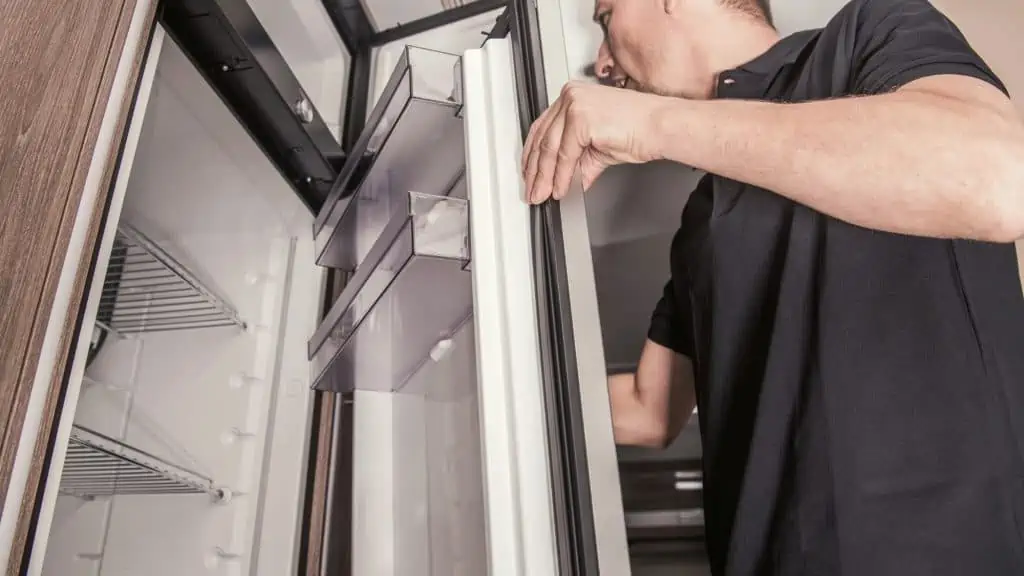
No Matter The Weather, The Fridge Is Running But Not Cooling Very Well.
Make sure your refrigerator is truly functioning correctly first.
Remove the shield and examine the flame to make sure the burner is clean and functioning correctly.
If the refrigerator is not cooling, but the thermostat believes it is, it may be a thermostat problem.
Additionally, confirm that the temperature settings are low enough.
If they are and the refrigerator still won’t turn on, the thermostat may need to be changed.
Check the quality of the burner flame if it is operating consistently but the RV fridge is still not getting cold.
It should have a steady orange or blue flame with little flickering.
Consider pulling the burner apart and cleaning it if the flame seems to be off.
Sometimes debris enters the burner, causing it to operate improperly.
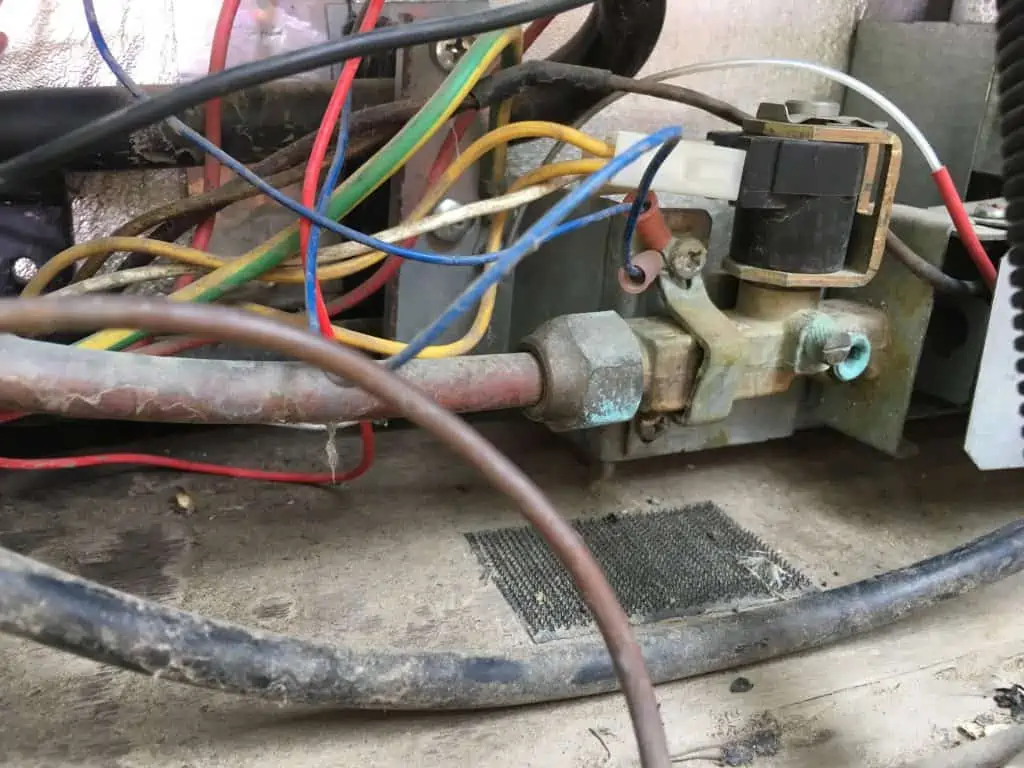
Additionally, install fridge fans to the fridge to provide optimum ventilation, as described in the hot weather section.
Sometimes, A New Refrigerator Is All That’s Needed.
Over time, the refrigerator in our RV began to show signs of inadequate cooling, initially in hot weather and subsequently in all temperatures.
Finally, a contemporary DC compressor unit took its place.
We discovered that many vacuum panels had burst (they will bulge) and were inadequately insulating the fridge when we took it out of the cabinet.
It was time for a replacement in our situation since the fridge was 20 years old and nearing the end of its useful life.
Adding an 8x more efficient high efficiency DC compressor to our RV fridge! better cooling as well!
If you’re thinking about replacing anything, I strongly advise choosing a DC compressor model.
These refrigerators often chill significantly better and use far less power than the absorption design if you are plugged in the most of the time or have a medium-sized solar system with lithium batteries.
RV refrigerators will ultimately develop issues since no equipment lasts forever.
You can keep your food cold by using these troubleshooting techniques to rapidly identify the source of an issue.

